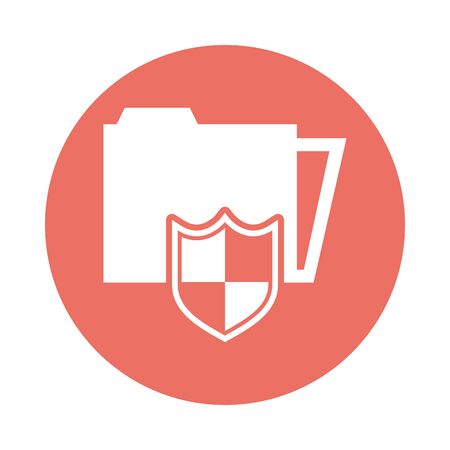1. Understanding What Renters Insurance Covers
If you’re renting an apartment, condo, or house in the U.S., renters insurance is one of the smartest ways to protect your personal stuff. Many people think their landlord’s insurance covers everything, but that’s not true. Your landlord’s policy only protects the building, not your belongings inside it.
What Does Renters Insurance Actually Cover?
Renters insurance is designed especially for tenants. The main part of a typical policy is coverage for your personal belongings—like clothes, electronics, furniture, and kitchen gadgets—if they’re damaged or lost due to certain events. Here are some common scenarios:
| Covered Event | Examples |
|---|---|
| Theft | Burglar breaks in and steals your laptop or jewelry. |
| Fire | A kitchen fire damages your furniture and clothing. |
| Water Damage | Pipe bursts and ruins your electronics (but NOT flooding from outside). |
| Vandalism | Your bike is destroyed by vandals in your storage unit. |
Common Misconceptions About Renters Insurance
- “I don’t have enough stuff to need insurance.” Most people underestimate the value of their belongings. If you add up your clothes, electronics, kitchenware, and furniture, it could easily total thousands of dollars.
- “My landlord’s insurance will cover me.” Landlord policies only cover the building structure, not what’s inside your apartment that belongs to you.
- “Renters insurance is too expensive.” In reality, most renters policies are very affordable—often less than the price of a couple of lattes per month.
Quick Overview: What’s Covered vs. Not Covered?
| This IS Usually Covered | This Is NOT Covered |
|---|---|
| Theft inside or outside your home Fire and smoke damage Certain types of water damage Vandalism |
Flooding from outside Earthquakes (unless added) Pest infestations Your roommate’s belongings unless listed on the policy |
Understanding what renters insurance covers helps you see why it’s so valuable. Whether you’re worried about a break-in, an accidental fire, or unexpected water leaks from a neighbor upstairs, renters insurance gives you peace of mind that your personal things are protected.
2. Protection from Theft: Safeguarding Your Valuables
If you rent an apartment or house in the U.S., renters insurance is one of the best ways to protect your personal belongings from theft. Even if you think your neighborhood is safe, break-ins and theft can happen when you least expect it. Renters insurance helps you recover by covering the cost to replace or repair items that are stolen, both inside your apartment and sometimes even when youre out and about.
How Does Renters Insurance Cover Theft?
When someone breaks into your home and steals your belongings—like electronics, jewelry, or bikes—renters insurance steps in to help. After filing a police report and a claim with your insurance company, you can get reimbursed for the value of the stolen items (up to your policy limits). Some policies also cover theft that happens outside your home, such as if your laptop is stolen from your car or your bike is taken while locked up downtown.
What’s Typically Covered?
| Item | Theft Inside Home | Theft Outside Home |
|---|---|---|
| Laptop/Tablet | ✔️ | ✔️ (depends on policy) |
| Bicycle | ✔️ | ✔️ (if listed on policy) |
| Jewelry | ✔️ (with coverage limits) | ✔️ (with coverage limits) |
| TV/Game Console | ✔️ | ❌ |
| Clothing/Personal Items | ✔️ | ✔️ (depends on situation) |
Note:
Certain high-value items like jewelry or collectibles may have special dollar limits unless you add extra coverage (called a rider or endorsement) to your policy.
What Should You Do If Theft Happens?
If you’re ever a victim of theft, follow these steps:
- Contact the police right away and file a report.
- Document what was stolen—make a list and gather receipts or photos if possible.
- Notify your insurance company as soon as possible to start the claims process.
Your insurer will walk you through the next steps, and with valid documentation, you’ll typically be reimbursed for the actual cash value or replacement cost of your stolen items, depending on your policy type.
A Real-Life Example
Sara’s apartment was broken into while she was at work. Her TV and laptop were missing. She filed a police report and then contacted her renters insurance provider. Because she had coverage for personal property, her insurer reimbursed her for the cost to replace both items after she paid her deductible.
The Peace of Mind You Deserve
No one wants to think about being robbed, but renters insurance gives you confidence that if the worst happens, you wont have to pay out-of-pocket to replace everything you lost. Its an affordable way to make sure your valuables are protected wherever life takes you.

3. Coverage for Fire and Smoke Damage
If you rent an apartment or house, unexpected events like fires or smoke damage can happen when you least expect them. Even a small kitchen fire or a neighbor’s accident can quickly turn into a big problem. That’s where renters insurance becomes your safety net, offering financial support to help you recover from these stressful situations.
How Renters Insurance Helps After Fire or Smoke Damage
If your personal belongings—like clothes, electronics, furniture, or even cherished keepsakes—are damaged or destroyed by fire or smoke, renters insurance can help cover the cost to replace or repair those items. Whether the fire started in your unit or somewhere else in the building, as long as it was accidental and not caused by intentional acts, your policy usually applies.
What Does It Cover?
Here’s a quick look at how renters insurance typically covers your losses after fire or smoke damage:
| Type of Belonging | Covered by Renters Insurance? | Example Scenario |
|---|---|---|
| Clothing | Yes | Your closet contents are ruined by smoke from a kitchen fire. |
| Electronics | Yes | Your laptop and TV are damaged by heat from a neighbor’s apartment fire. |
| Furniture | Yes | Your couch and bed suffer burns and smoke stains after a living room fire. |
| Jewelry & Valuables* | Limited/With Endorsement | Your jewelry box is affected by smoke; higher-value items may need extra coverage. |
| Kitchenware & Appliances | Yes | Your toaster and cookware are damaged during a small kitchen blaze. |
*Check your policy for specific limits on high-value items.
How Do You Get Financial Support?
If you experience fire or smoke damage, contact your insurance provider right away. You’ll usually need to provide proof of what was lost (like receipts or photos) and an estimate of their value. Once your claim is approved, you’ll get funds to replace or repair your damaged belongings up to the policy limit, minus any deductible.
4. Water Damage: What’s Covered and What Isn’t
When it comes to renters insurance, water damage can be confusing. Not all types of water damage are treated the same way, so its important to know when your personal belongings are protected and when they aren’t.
What Types of Water Damage Are Covered?
Most standard renters insurance policies cover sudden and accidental water damage. This means if a pipe bursts in your apartment or your washing machine hose suddenly leaks, your policy will likely help pay for damaged clothes, electronics, furniture, and other personal items. The key is that the damage must be unexpected and not due to neglect.
Common Covered Scenarios
Covered Incident |
Example |
|---|---|
| Burst Pipes | A frozen pipe bursts during winter, soaking your laptop and books |
| Appliance Malfunction | Your dishwasher suddenly breaks and water spills onto your kitchen floor, damaging your rug and shoes |
| Accidental Overflow | The bathtub accidentally overflows and ruins your towels and bath mats |
Water Damage That Isn’t Covered
There are also types of water damage that renters insurance won’t cover. The biggest exclusion is flooding from natural disasters like heavy rain or hurricanes. If water seeps into your apartment from outside, or if groundwater rises up through the floors, you’ll need separate flood insurance for those situations.
Exclusions to Be Aware Of
Not Covered Incident |
Example |
|---|---|
| Flooding from Outside Sources | A river overflows after a storm and water enters your apartment, soaking your sofa and TV |
| Sewer Backup (unless added as extra) | Sewage backs up through the drain, ruining rugs and clothing in the bathroom (check if you have extra coverage) |
| Negligence or Maintenance Issues | You ignore a slow leak under the sink for weeks until it damages your kitchenware—this may not be covered since it wasn’t sudden or accidental |
Key Takeaways on Water Damage Coverage
Renters insurance is designed to protect you from surprises—not ongoing problems or major disasters like floods. Always check your policy for specifics, and talk to your insurance agent if you’re unsure about any scenario. For true flood protection, consider looking into a separate flood insurance policy.
5. Filing a Claim and Tips for Maximizing Your Protection
How to File a Renters Insurance Claim
If your personal belongings are stolen, damaged by fire, or affected by water damage, knowing how to file a renters insurance claim can help you recover faster. Here’s a simple step-by-step guide:
- Contact Your Insurance Company: Call your insurer or use their mobile app as soon as possible after an incident.
- Document the Damage or Loss: Take clear photos or videos of damaged items and areas. If theft occurred, file a police report and keep a copy for your records.
- List All Affected Items: Write down every item that was stolen or damaged. Include brand names, models, serial numbers, and purchase prices if available.
- Submit Required Documents: Provide receipts, warranties, or bank statements to support your claim if you have them.
- Work with the Claims Adjuster: An adjuster may contact you to ask questions or inspect the damage. Stay in touch and respond promptly.
- Track Your Claim Status: Most insurance companies let you follow the progress of your claim online or through their app.
How to Document Your Belongings
Good documentation makes filing a claim much easier. Use the table below to organize your possessions:
| Item | Brand/Model | Serial Number | Date Purchased | Purchase Price | Photo (Y/N) |
|---|---|---|---|---|---|
| Laptop | Dell XPS 13 | 12345ABC | 06/2023 | $1200 | Y |
| Bicycle | Trek FX 2 Disc | TREK6789 | 09/2022 | $650 | Y |
| Sony TV | X900H 55″ | SNYTV4321 | 01/2024 | $700 | Y |
Tips for Maximizing Your Renters Insurance Protection
- Review Your Coverage Limits: Make sure your policy limit covers the total value of your possessions. Update it if you buy expensive new items.
- Add Riders for High-Value Items: Jewelry, electronics, or collectibles might need extra coverage called “scheduled personal property.” Ask your agent about this option.
- Select Replacement Cost Value (RCV): RCV policies pay the cost to replace items with new ones, not just their depreciated value (Actual Cash Value).
- Avoid Underinsuring Yourself: Don’t guess! Take inventory regularly so your policy always matches what you own.
- Bolt Down Big Purchases: Save receipts and keep digital copies in cloud storage for easy access during emergencies.
- Mention All Incidents Promptly: Report damages or losses quickly to avoid delays in claims processing.
If You Need More Coverage…
If you have roommates or live in high-risk areas (like flood zones), talk with your insurance provider about special endorsements or additional policies that could further protect your belongings. Remember, renters insurance is there to give you peace of mind when the unexpected happens!


